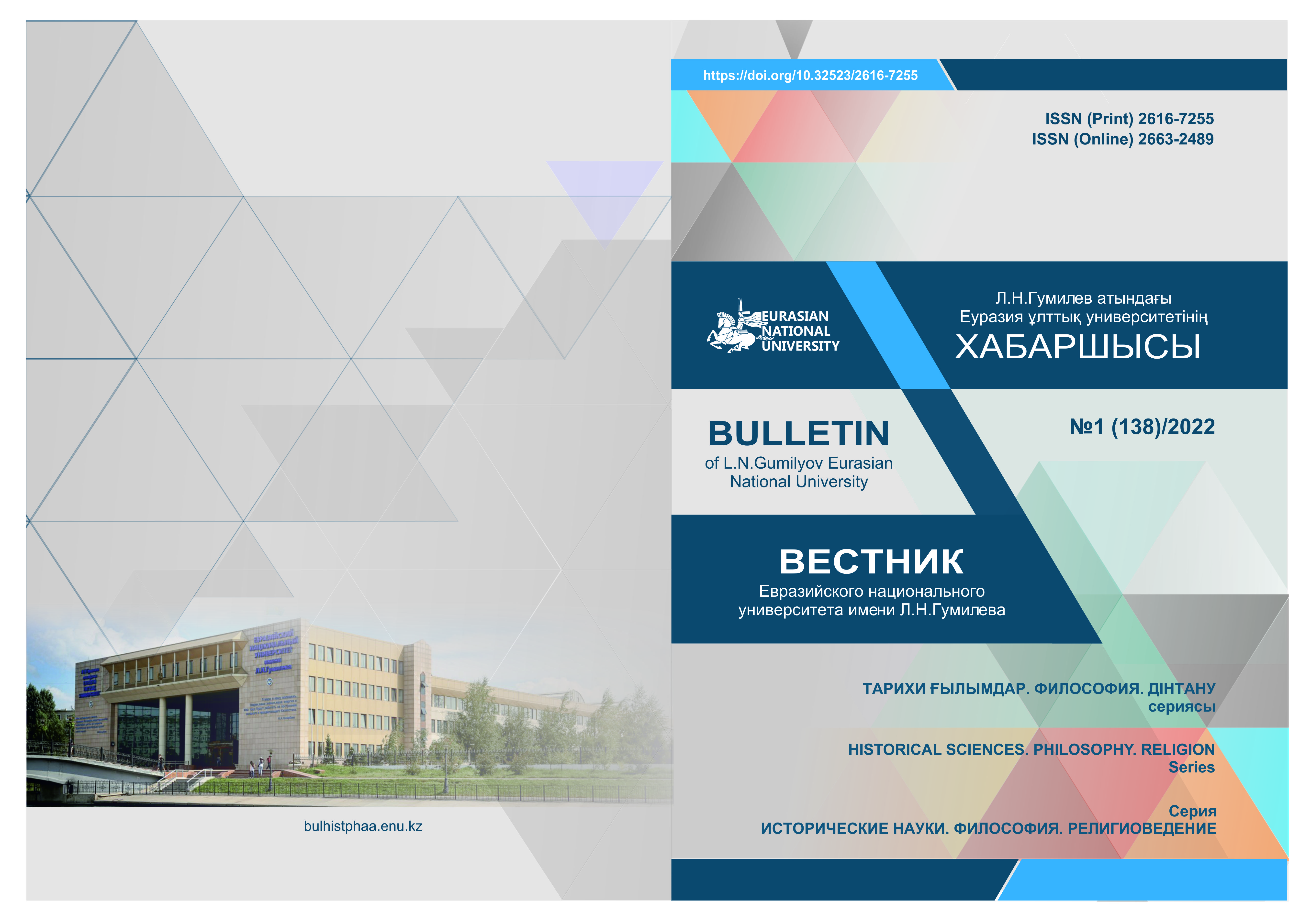Semirechye regional department of national affairs (1918–1920) as the protector of the muslim population of the region
Views: 212 / PDF downloads: 148
DOI:
https://doi.org/10.32523/2616-7255-2022-138-1-40-58Keywords:
colonialism; revolution; power; Soviet; Semirechye; Regional department; Kazakhs; migrants; Muslims; conflict; famine; protection.Abstract
The article is based on documents stored in the State Archives of the Almaty Region (Almaty, Republic of Kazakhstan), Fund 489, Op. 1: "Documents of the Semirechye Regional Department for National Affairs" (1918–1919) ", highlights the activities of the Regional Department for National Affairs in the early years of Soviet power in Semirechye (Zhetysu). The department, establised in November 1918, was at that time the only body connecting the Muslim population with the Soviet regime and protecting it in the difficult conditions of the Civil War and social changes. This was the period of the so-called “Colonial revolution”, when the “proletarian” government lobbied for the interests of the Russian population (including the Cossacks and the wealthy peasantry), ignoring the interests of the impoverished (“proletarian”) Muslim population. The Soviet government treated the Muslims, who were mostly nomadic and semi-nomadic population, as the "dark masses". The article argues that the Regional Department for National Affairs acted as a defender of Muslims during ethnic conflicts caused by the anti-colonial uprising of 1916 and its aftermath. The department defended the Muslim, primarily Kazakh and Kyrgyz, population from the new government, which the Muslims perceived to be genuinely Russian. The main directions of the Regional Department's work related to the protection of the indigenous population are considered: 1) general legal assistance; 2) assistance in the settlement of interethnic conflicts; 3) aid to the starving people; 4) assistance and protection during the mobilization of Muslims for agricultural and public works; 5) assistance to Kazakh women in trouble; 6) helping Muslim children; 7) the fight against the Russification of office work; 8) upholding the special position of the nomads and explaining the essence of the nomadic economy to the Russian leaders of the region.
Downloads

Downloads
Published
How to Cite
Issue
Section
License
Copyright (c) 2022 Zarine A. Dzhandosova

This work is licensed under a Creative Commons Attribution-NonCommercial 4.0 International License.







